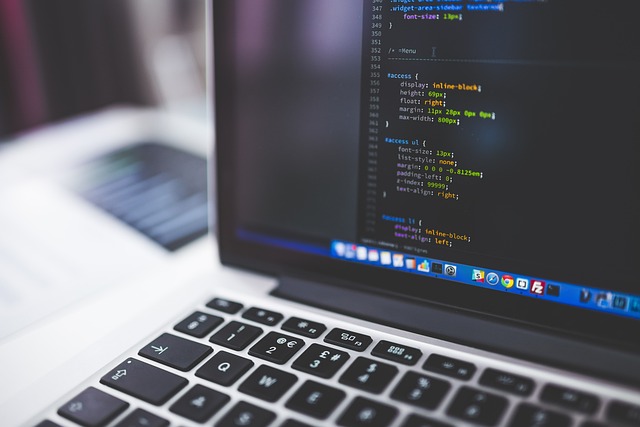What should you consider when you hire a software development company? How should you handle the intellectual property rights for the developed software? Are there legal issues you should be aware of when dealing with this sort of agreement? These are crucial questions that need to be addressed when hiring software development services.
The main issue here revolves around the ambiguity and complexity of intellectual property (IP) laws when it comes to software development. According to the World Intellectual Property Organization (WIPO), it’s often hard to define who owns what in a digital product. This issue is further confirmed by the United States Patent and Trademark Office (USPTO), which states that determining software IP ownership can be a legally challenging process. Therefore, a proposal to develop clear, contract-based IP guidelines for software development in the United States could potentially eliminate this problem.
In this article, you will gather a comprehensive understanding of how to navigate through the complex world of IP rights in software development. You will learn how to negotiate and draft contracts with software developers to ensure clear ownership of code and other digital assets. The discussions will also extend to the legal aspects that may arise in these situations and how you can tackle these challenges proactively.
The purpose of the article is to help you navigate the course of software development hiring with an emphasis on Intellectual Property considerations. Armed with knowledge and right precautions, you can mitigate risks and ensure smooth business operations. In this complex digital realm, the power of informed decision making cannot be overstated.

Key Definitions and Clarifications in Intellectual Property Law
Intellectual Property (IP) refers to the creations of the mind that have commercial and moral value. These include inventions, literary works, symbols, names, etc. In software development, it may include code, design, and unique features.
Legal Considerations are factors like laws, regulations, and legal rights that must be considered and complied with when hiring a software development company. It is important to outline who will own the IP rights to the software being developed.
Software Development Company is a firm that offers services related to building, maintaining, and updating software or applications based on client needs. Understanding their approach to IP rights is critical.
Navigating the Murky Waters of Intellectual Property for Entrepreneurs: Ensuring Legal Protection during Software Development Hiring
Navigating Intellectual Property Laws when Hiring Software Developers
When launching a new entrepreneurial venture, protecting your intellectual property (IP) is critical. This is particularly true when hiring a software development company to create or improve upon your product. Intellectual property laws provide a legal framework for individuals and companies to control and profit from the things they invent and create. However, navigating these laws can be complex and challenging for entrepreneurs. A fundamental understanding of these laws can help avoid potential IP disputes or litigation.
Key intellectual property laws include copyright, patents, and trademarks. Copyright laws help protect the original works of authorship such as computer software. It gives the copyright holder exclusive rights for reproduction, distribution, adaptation, and public display of the work. However, these laws can become complex when hiring an external software development company. Typically, the person who creates a work is considered its author and automatically holds the copyright. This means, if a software development company creates software for you, they could technically claim ownership unless explicitly stated otherwise in the contract.
Ensuring Legal Protection during Hiring
The key to avoiding intellectual property disputes when hiring a software development company is to include clear terms in the contract regarding the ownership of the developed software. It is crucial to stipulate who will hold the ownership rights of the developed software, the repercussions of a breach, and the steps for conflict resolution.
- Include a clause that explicitly states that the created software is being made for you (the client) and that all applicable intellectual property rights for the software will belong to you upon completion.
- Consider incorporating an indemnification clause. This clause requires the software company to compensate you for any losses or damages caused by their violation of intellectual property laws.
- Establish a dispute resolution method in the contract. This could involve arbitration, mediation, or litigation in a pre-agreed upon jurisdiction.
In conclusion, hiring a software development company can necessitate careful navigation of intellectual property laws. To ensure that you maintain control of your unique product, it is recommended to seek the help of an intellectual property lawyer during the hiring process. By taking the time to understanding the complexities of IP laws, entrepreneurs can secure the rights to their software and protect their business from potential litigation. With careful planning, entrepreneurs can successfully navigate the murky waters of intellectual property laws.
From Concept to Contract: How Intellectual Property Rights Impact Your Software Development Company Hiring Process
Is your software product genuinely safeguarded?
The complexity of intellectual property rights (IPRs) negotiation is often underestimated when businesses enter into agreements with software development companies. Due diligence is integral and extends beyond merely hiring a reputable company. It’s a fine ballet of contractual legalese, which, when choreographed correctly, ensures your innovations are inherently safeguarded.
The imbalance of power often exists in favor of the software development company; they have the technical prowess, while your firm holds the conceptual innovation. Consequently, this differential can lead to inadvertent intellectual property infringements if considerations are not adequately addressed during contractual negotiations. It is of utmost importance to understand that software properties, such as source code, designs, schema, and database, should be rightfully recognized as your intellectual assets.
The primary challenge lies in the successful translation of this knowledge into the legal language of contract negotiations, often called IP clauses. Many businesses do not understand the gravity of these clauses and neglect to equip themselves with legal expertise when negotiating deals. Inadequate IP clauses may lead to infringement disputes, litigation, or forfeiture of the right to the intellectual property. Hence, the knack is to demand exclusive ownership or licensing rights over the developed software, ensuring your competitive advantage is upheld continuously.
Securing your Intellectual Property: Best Practices
There have been several successful cases of businesses that managed to ward off infringements by adapting best practices during negotiations with software development firms. For instance, Airbnb implemented an assignment clause within their contractual negotiations, which led to the exclusive ownership of the software IP. This tactic provided them with full control and discretion over the manufactured software.
Another strategy includes agile contracts, which were designed to accommodate the iterative software development processes. Companies, such as Spotify and Scrum, have adopted Agile strategies and embedded them within their software development contracts. This allowed the terms of their agreement to be adjusted on an iteration-by-iteration basis, alongside progress, enhancing trust and flexibility between parties.
However, the most popular of all is the approach most larger firms, such as Amazon and IBM, take, involving an exclusive licensing clause. Here, the software rental model is emphasized. The software developer is paid for their programming skills, while the hiring company retains sole discretion over the software’s commercially exploitable rights.
However, no one-size-fits-all strategy exists when it comes to intellectual property protection. Individual company needs, the sophistication of software, market competition, all interplay in deciding the appropriate form of safeguarding. Yet, careful negotiation, contracting foresight, backed by a robust understanding of intellectual property rights, will inherently strengthen the company’s competitive position and safeguard their significant investment in software development.
Unseen Consequences: The Crucial Intersection of Intellectual Property and Hiring Software Development Companies
Does Your Company Grasp the Notion of Intellectual Property?
With the digital era transforming business operations, software development has grown into a central component. We live in a world dominated by applications that solve our everyday tasks. But how does your company deal with intellectual property issues when hiring a software development company? Are there legal aspects and misconceptions illuminating this topic? The concept of intellectual property revolves around intangible assets such as trade secrets, patents, copyright, designs, and trademarks. When hiring a development company, it’s vital to remember that the coding and design they use to create your software falls under the mantel of intellectual property.
The Perplexing Predicament of Intellectual Property
Understanding and rectifying intellectual property misconceptions becomes a pressing concern when venturing into collaborative projects with software development companies. Most businesses often overlook the significant risk of falling into legal disputes linked to intellectual property infringements. Even with trust and proven expertise of the software company, it can put your business at risk if the written code or design infringes on the intellectual property rights of another entity. This could lead to costly and reputation-damaging legal battles. Thus, it becomes fundamental to address the issue at the earliest stages of collaboration.
Hand-picked Approaches to Intellectual Property in Software Development
Mapping out the landscape of intellectual property at the onset of any project can avert future upheavals. Start by requesting a warranty clause in the contract with the software development company, ensuring that their work doesn’t infringe upon the intellectual property rights of others. Regular code audits can also prevent disputes by identifying potential violations early on. It’s also suggested to include an indemnification clause that protects your business from any intellectual property infringement claims. Another preventive measure is to provide continuous training to your team about intellectual property and its significance in maintaining and nurturing business relationships. These strategies can help unpick the looming misconception cloud of intellectual property in the software development world, shielding your business endeavours from potential litigation and propelling you towards success, worry-free.
Conclusion
Isn’t it interesting to reflect on how the unseen world of intellectual property could have such substantial implications when hiring a software development company? This complicated process, which may seem intimidating at first, becomes more manageable when you have a firm grasp of legal parameters and an understanding of how to protect your intellectual property rights. It’s this combination of knowledge and legal insight which creates a more secure and successful relationship with software development firms, saving a company from potential legal troubles down the line.
We truly hope you’ve found this article insightful and useful. Each week, doggedly, we delve into complex topics like these, untangling the knots and providing you with clear, useful content. If you have found value in this piece and seek to acquire newfound awareness in this ever-changing business landscape, why not become part of our community? By following our blog, you gain access to a wealth of information that can assist you in making informed decisions for your business.
As we wrap up on this topical piece, we certainly don’t want you to miss out on our future articles. We can assure you that there are more informative pieces to come, packed full of practical insights and tips. So keep an eye out for our upcoming releases, you never know when the next one might directly address the very challenge you’re currently facing. We appreciate you spending your time with us today and look forward to guiding you through more complex business terrains in future.
F.A.Q.
1. What is Intellectual Property (IP) in regards to software development?
Intellectual Property in software development refers to the ownership of the ideas, systems, methodologies, and concepts used in creating software. This legal term can include copyrights, patents, and trade secrets.
2. Why is it important to consider IP laws when hiring a software development company?
Considering IP laws when hiring a software development company is important because these laws seek to protect the uniqueness and originality of the software. Failure to do so may lead to conflicts, including lawsuits regarding infringement and theft of ideas or concepts.
3. What should we include in an agreement with a software development company to protect our IP rights?
You should include clauses that clearly define the ownership of IP generated during the course of the development project. The agreement should also stipulate terms for IP disclosures, licensing, and transfer of ownership, if necessary.
4. How can we ensure that the software development company respects our IP rights?
By signing Non-Disclosure Agreements (NDAs) and having comprehensive and clear contracts, you can ensure a software development company respects your IP rights. In addition, regular audits and the establishment of strong communication channels can also be beneficial.
5. What action can we take if our IP rights are violated by the software development company?
In case of IP rights violation, you can resort to the legal options outlined in your agreement, which may include arbitration, negotiation, or a lawsuit. You can also seek to involve IP regulatory bodies who can help escalate the matter to achieve a favourable resolution.


